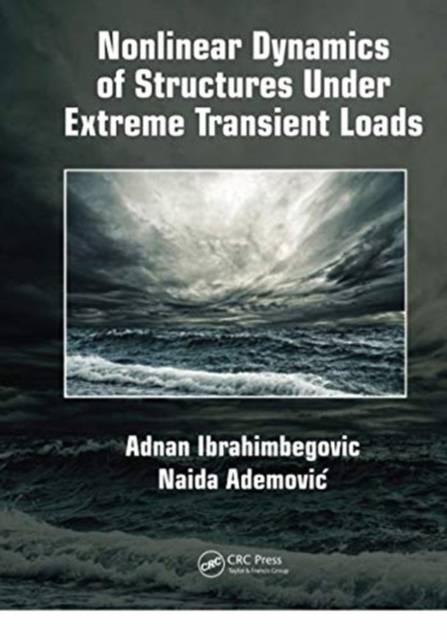
- Afhalen na 1 uur in een winkel met voorraad
- Gratis thuislevering in België vanaf € 30
- Ruim aanbod met 7 miljoen producten
- Afhalen na 1 uur in een winkel met voorraad
- Gratis thuislevering in België vanaf € 30
- Ruim aanbod met 7 miljoen producten
Nonlinear Dynamics of Structures Under Extreme Transient Loads
Adnan Ibrahimbegovic, Naida AdemovicOmschrijving
The effect of combined extreme transient loadings on a structure is not well understood--whether the source is man-made, such as an explosion and fire, or natural, such as an earthquake or extreme wind loading. A critical assessment of current knowledge is timely (with Fukushima-like disasters or terrorist threats).
The central issue in all these problems is structural integrity, along with their transient nature, their unexpectedness, and often the uncertainty behind their cause. No single traditional scientific discipline provides complete answers, rather, a number of tools need to be brought together: nonlinear dynamics, probability theory, some understanding of the physical nature of the problem, as well as modeling and computational techniques for representing inelastic behavior mechanisms.
Nonlinear Dynamics of Structures Under Extreme Transient Loads covers model building for different engineering structures and provides detailed presentations of extreme loading conditions. A number of illustrations are given quantifying; a plane crash or explosion induced impact loading, the effects of strong earthquake motion, and the impact and long-duration effects of strong stormy winds--along with a relevant framework for using modern computational tools. The book considers the levels of reserve in existing structures, and ways of reducing the negative impact of high-risk situations by employing sounder design procedures.
Specificaties
Betrokkenen
- Auteur(s):
- Uitgeverij:
Inhoud
- Aantal bladzijden:
- 252
- Taal:
- Engels
Eigenschappen
- Productcode (EAN):
- 9780367728786
- Verschijningsdatum:
- 18/12/2020
- Uitvoering:
- Paperback
- Formaat:
- Trade paperback (VS)
- Afmetingen:
- 178 mm x 254 mm
- Gewicht:
- 444 g

Alleen bij Standaard Boekhandel
Beoordelingen
We publiceren alleen reviews die voldoen aan de voorwaarden voor reviews. Bekijk onze voorwaarden voor reviews.











